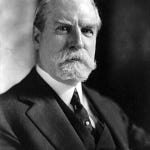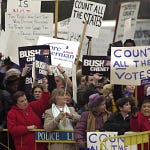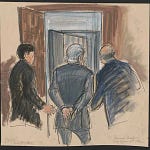On this day in legal history, November 22 marks a pivotal moment with the assassination of President John F. Kennedy in 1963. While traveling through Dallas, Texas, Kennedy was fatally shot, an event that sent shockwaves across the nation and the world. His death not only marked a tragic loss but also ignited numerous conspiracy theories and debates about the circumstances surrounding the assassination.
Prior to his assassination, President Kennedy had made notable comments about the Central Intelligence Agency (CIA), expressing a desire to dismantle and reform the organization. He is famously quoted as having threatened to "tear the CIA apart and scatter it to the winds," reflecting his growing frustration with the agency's operations. This, and other unique facts and coincidences set the stage for as many conspiracy theories as there have been viewers of the Zapruder film of the assassination.
In the wake of Kennedy's death, Vice President Lyndon B. Johnson was swiftly sworn in as the 36th President of the United States, symbolizing a rapid and solemn transition of power during a time of national crisis. The gravity of the situation led to an immediate demand for answers and the need to address widespread public speculation and concern.
To this end, Chief Justice Earl Warren was appointed to head a special commission, later known as the Warren Commission, to thoroughly investigate the assassination. This commission was tasked with uncovering the facts and circumstances of Kennedy's death, and its formation underscored the legal and historical significance of the event.
The Warren Commission conducted an extensive investigation, delving into various aspects of the assassination, including Lee Harvey Oswald's background, his actions on the day of the assassination, and any possible conspiracies. The commission's final report, presented to President Johnson on September 24, 1964, concluded that Oswald acted alone in assassinating Kennedy.
The report, however, did not put an end to the controversy and speculation. Over the years, numerous theories and counter-arguments have emerged, questioning the commission's findings and suggesting alternative explanations. The Kennedy assassination remains a subject of fascination and debate, symbolizing a moment in history where legal, political, and social narratives intersected dramatically. The events of November 22, 1963, continue to resonate as a significant and somber chapter in American legal and political history.
Binance Holdings Ltd. and its CEO, Changpeng Zhao, have pleaded guilty to anti-money laundering and US sanctions violations, settling a lengthy legal battle with the US. Under the settlement, Binance will pay a massive $4.3 billion fine, while Zhao will pay $50 million and step down as CEO. This resolution, involving the Justice Department, Treasury Department, and the Commodity Futures Trading Commission, concludes a years-long investigation into the cryptocurrency exchange's activities.
The charges against Binance included transactions with terrorist groups such as Hamas, operating an unlicensed money transmitting business, and violating US sanctions. Zhao could face up to 10 years in prison, but is likely to receive no more than 18 months under his plea deal. This deal contrasts with harsher penalties faced by other crypto criminals.
Binance's violations were extensive, involving failure to report suspicious transactions and allowing over a million transactions between US and Iran-based customers. Attorney General Merrick Garland emphasized the significant size of Binance's penalties, reflecting the severity of its legal breaches. The fines will be distributed among various US agencies.
As part of the settlement, Zhao has stepped down as Binance CEO, succeeded by Richard Teng. Binance must also enhance its compliance program and appoint an independent monitor for three years. Despite admitting to lacking proper compliance controls, Binance maintains it did not misappropriate user funds or engage in market manipulation.
The case highlighted Binance's deliberate avoidance of US laws to attract US users. The exchange facilitated US-based VIP customers to trade through offshore entities, with internal communications revealing strategies to evade US oversight. Zhao, aware of the presence of US customers, chose a risky approach, preferring to ask for forgiveness rather than permission.
In court, Zhao accepted responsibility, agreeing to a $175 million bond for his release while awaiting sentencing. The resolution marks one of the largest penalties in the crypto industry, reflecting increasing scrutiny and legal actions against major players in this sector. The case against Binance underscores the growing regulatory focus on cryptocurrency exchanges and their compliance with international laws.
Binance Pleads Guilty, Loses CZ, Pays Fines to End Legal Woes
Binance's Zhao pleads guilty, steps down to settle US illicit finance probe | Reuters
According to exclusive reporting by Riddhi Setty at Bloomberg Law, Macy’s Inc. is facing scrutiny from America First Legal (AFL), a conservative legal group led by former Trump adviser Stephen Miller. AFL has accused Macy’s of implementing a racially discriminatory diversity plan and has requested the US Equal Employment Opportunity Commission (EEOC) to investigate the retailer. Macy’s 2019 five-point diversity plan, which aims for increased ethnic diversity in senior positions and leadership skill development for managers and directors of various ethnic backgrounds, is at the center of AFL's allegations.
AFL asserts that Macy’s diversity initiatives likely breach federal laws, particularly Title VII of the 1964 Civil Rights Act, which prohibits race discrimination. This legal challenge is part of AFL's broader strategy, having targeted other high-profile employers like NASCAR, Major League Baseball, and Starbucks for their diversity, equity, and inclusion efforts.
The group’s increased activity follows the US Supreme Court decision limiting race-conscious policies in higher education. AFL has urged the EEOC commissioners to file a “commissioner charge” against Macy’s, a relatively rare action within the agency, with a significant increase in such charges filed in the fiscal year 2022 compared to 2021.
Additionally, AFL has written to Macy’s board of directors and chairman, arguing that the retailer’s diversity policies not only violate federal civil rights laws but also constitute a waste of company assets and a breach of fiduciary duty.
Stephen Miller’s Legal Group Targets Macy’s Diversity Policies
In a significant legal victory, General Mills Inc., Kraft Heinz Co., Kellogg Co., and Nestle SA won a price-fixing lawsuit against the nation's largest egg producers. An Illinois federal jury found that Cal-Maine Foods Inc., Rose Acre Farms Inc., and two egg-industry trade groups conspired to restrict egg supply, leading these food companies to overpay for eggs for years. This decision, reached on November 21, 2023, by a jury of nine men and three women, marks a notable outcome in antitrust litigation.
The jury's verdict, which is yet to be quantified in terms of damages, will be determined in a trial set to begin on November 29. Importantly, any awarded damages will be trebled by law, although the jury won't be informed of this statutory requirement. The defense, led by King & Spalding LLP partners, appeared stunned by the verdict, with the attorneys visibly shocked in the courtroom.
This lawsuit began in 2011 when the food producers sued the egg producers and trade groups, alleging a conspiracy to reduce supply and artificially inflate egg prices. The jury agreed with the plaintiffs, finding evidence of the conspiracy from October 2004 to December 2008 through actions like reducing the hen population and increasing egg exports. However, the jury did not find that all egg producers associated with the industry groups were part of the conspiracy, nor did it agree that the food companies were injured by the alleged conspiracy from 2009 to 2012.
The verdict in favor of the food companies could set a precedent and encourage other plaintiffs to pursue anticompetitive behavior cases against food producers. This case is seen as part of a broader scrutiny of antitrust practices in the food industry. The presiding judge, Steven Seeger, praised the quality of legal advocacy from both sides, even humorously distributing egg-containing brownies to the lawyers at the end of the arguments.
The case, known as Kraft Foods Global, Inc. v. United Egg Producers, Inc., represents a critical moment in the ongoing legal battles over price-fixing and market manipulation in the food industry.
Kellogg, Kraft Win Price-Fixing Suit Against Egg Companies (2)
New Jersey has officially committed to phasing out new gasoline-powered cars by 2035, joining several other states in this environmental initiative. The state's Advanced Clean Cars II rule, set to be published on December 18, mandates that all new cars, pickup trucks, and SUVs sold in New Jersey must be zero-emission vehicles (ZEVs) by 2035. This move aligns with standards first established by California in 2022, requiring manufacturers to gradually increase the percentage of ZEVs in their sales starting from the 2027 model year.
The decision has been praised by environmentalists and lawmakers, including US Rep. Frank Pallone Jr. (D-N.J.), who sees it as a crucial step in combating climate change and transforming the transportation sector. The Sierra Club and the Natural Resources Defense Council have also lauded New Jersey's commitment to cleaner air, improved public health, and climate change mitigation.
However, the move has been met with criticism from industry groups. The New Jersey Coalition of Automotive Retailers views the rule as an extreme government mandate that restricts consumer choice and could lead to unintended consequences, such as consumers holding onto older, gas-powered vehicles longer. Dave Rible from the New Jersey Utility and Transportation Contractors Association also criticized the plan, citing the current state of infrastructure and economics as incompatible with such a transition.
The rule allows other states to adopt California's stringent standards under the federal Clean Air Act, a path already chosen by several states including Connecticut, Rhode Island, and New York. While New Jersey's rule doesn't directly restrict consumers or car dealers and offers some flexibility for manufacturers, the New Jersey Coalition of Automotive Retailers argues that the approach is heavy-handed and could negatively impact consumer behavior. Despite these concerns, New Jersey's commitment represents a significant step in the nationwide effort to transition towards cleaner, more sustainable transportation solutions.
New Jersey Officially on Board to Phase Out Gas Cars by 2035 (1)
A Florida judge has found "reasonable evidence" suggesting that Tesla CEO Elon Musk and other company executives were aware of defects in the automaker's Autopilot system but continued to allow the cars to be driven, posing safety risks. This ruling, by Judge Reid Scott of the Palm Beach County Circuit Court, is significant as it allows the plaintiff in a fatal crash lawsuit to pursue punitive damages against Tesla for intentional misconduct and gross negligence. The lawsuit stems from a 2019 incident where a Tesla Model 3, driven by Stephen Banner, crashed under a big rig truck, resulting in Banner's death.
This ruling marks a setback for Tesla, which had previously won two product liability trials in California regarding its Autopilot system. The judge's summary of evidence highlights "alarming inconsistencies" between Tesla's internal knowledge and its external marketing claims about Autopilot's capabilities.
Judge Scott's findings indicate that Tesla engaged in misleading marketing by portraying its products as autonomous, and Musk's public statements significantly influenced public perception of the technology. The judge also determined that Tesla's warnings in manuals and agreements were inadequate and highlighted the similarity of this accident to a 2016 fatal crash involving the Autopilot system's failure to detect crossing trucks.
The judge cited a 2016 promotional video showing a Tesla driving autonomously as misleading, noting its lack of disclaimers about the technology's aspirational nature. This evidence, according to the judge, could lead to a public trial with potentially awkward revelations for Tesla and Musk, and potentially result in a verdict that includes punitive damages. Banner's attorney expressed pride in the results based on evidence of punitive conduct.
Judge finds evidence that Tesla, Musk knew about Autopilot defect | Reuters
OpenAI and Microsoft are embroiled in a lawsuit for allegedly misusing the work of nonfiction authors in training their AI models, such as ChatGPT. Author Julian Sancton, leading a proposed class action in Manhattan federal court, accuses OpenAI of copying thousands of nonfiction books without permission for this purpose. This lawsuit is part of a broader trend of similar legal challenges against OpenAI, involving notable authors like John Grisham and George R.R. Martin, which the companies have denied. Sancton's lawsuit is unique in that it also implicates Microsoft as a defendant due to its significant investments in OpenAI and integration of its AI systems.
In a dramatic turn of events, Sam Altman, who was recently fired as CEO of OpenAI, has been reinstated, ending a tumultuous week that shook Silicon Valley. Altman's dismissal had caused shockwaves, with OpenAI's investors and approximately 770 employees rallying for his return. Under the new agreement, Altman will return as CEO but without a seat on the new board, which is undergoing a restructuring process. The new board will consist of notable figures like Bret Taylor, Larry Summers, and Adam D’Angelo, who was among those voting to oust Altman.
Altman's firing, initially citing a lack of candor in board discussions, has exposed rifts within OpenAI over its control and future direction. Since its inception as a nonprofit, OpenAI has evolved under Altman's leadership, attracting significant investments and shifting towards consumer product development. This shift has raised concerns about the company veering away from its original mission of being a transparent alternative to Big Tech.
Altman's return is seen as a stabilizing factor for OpenAI, bringing relief to investors, customers, and employees who feared the boardroom upheaval could lead to the company's collapse. This reinstatement is also beneficial for Microsoft, OpenAI's largest investor, which heavily relies on OpenAI's technology for its AI products. Microsoft CEO Satya Nadella has expressed support for the changes in OpenAI's board, looking forward to continuing their partnership and advancing AI technology. The resolution of this internal crisis at OpenAI holds significant implications for the broader AI industry and its competitive landscape.
OpenAI, Microsoft hit with new author copyright lawsuit over AI training | Reuters














